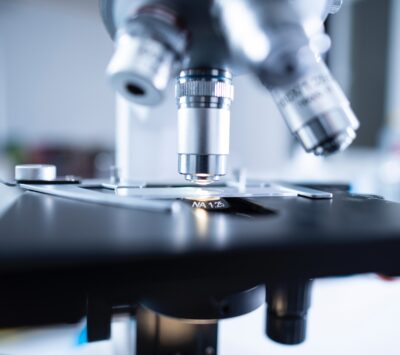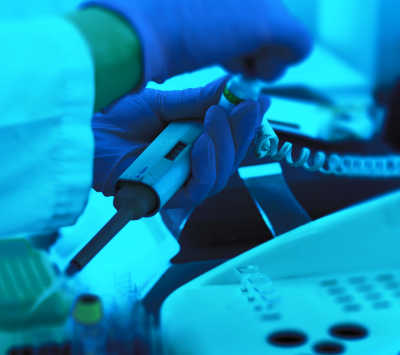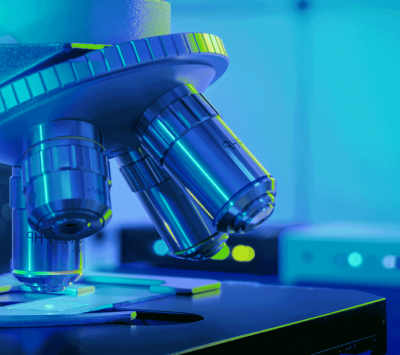
Christian Sina, Professor of Nutritional Medicine & Chair, The INUM
What are the determinants of our individual response to food?
Developing advanced nutritional strategies for patients. Moving away from one size fits all approaches and shifting to data-driven precision and even personalized nutritional therapies. Evolving innovative concepts which include digital therapeutics, next generation nutraceuticals and tailored microbiome derived therapies in order to improve the lives of many patients especially with irritable bowel syndrome, inflammatory bowel disease and colorectal cancer.
The aim of our research is to provide the best possible nutritional therapy individually adapted to each patient in order to combat diseases early and effectively. For this purpose, we combine state of the art technologies such as confocal laser endomicroscopy and latest wearable applications with biomarker signatures from blood, stool and urine to study in detail the interindividual differences in metabolic and immune responses of people to food.
IBS Study cohort
What are the molecular targets for effective dietary interventions?
Our research group investigates underlying mechanisms of inflammation-driven diseases of the gastrointestinal tract such as Crohn’s disease (CD), ulcerative colitis (UC) and colorectal cancer (CRC). These diseases are currently incurable and share a common pathophysiological feature: a disruption of the interaction between intestinal epithelial cells, immune cells and the intestinal microbiota, which is associated with a loss of function of the intestinal barrier. Due to the re-mitigating chronic inflammatory processes, inflammatory bowel disease patients (CD & UC) have an increased risk of developing inflammation-driven carcinomas in the gastrointestinal tract.
In detail, we demonstrated that CD patients display a hyperactive B-cell compartment reflected by an excessive production of autoantibodies against Saccharomyces cerevisiae or glycoprotein 2 (GP2). Our group further identified CD-associated autoantibodies against the intestinal M-cell expressed FimH receptor GP2 variant 4 to inhibit induction of adaptive immunity against adherent-invasive flagellated bacteria such as Salmonella typhimurium. However, underlying mechanisms of an imbalanced B-cell compartment in CD patients still remain to be elusive. Preliminary data of our group revealed CD patients in remission to display a defect in colonic plasma cell differentiation, leading to enhanced generation of plasmablasts and in a long-term view to an impairment of an effective mucosal adaptive immunity.
Proliferation and differentiation of cells have to be tightly balanced, while the metabolic switch from cytosolic aerobic glycolysis to the mitochondrial oxidative phosphorylation system (OXPHOS) is known to influence the transition of proliferating precursors into post-mitotic differentiated cells such as plasma cells or goblet cells. Our group recently identified two specific caspase-1 cleavage sites at asparagine residues 77 and 229 in the multifunctional protein p32/gC1qR/HABP1, a mitochondria localized protein that is indispensable in the maintenance of mitochondrial OXPHOS. Processing of p32 by active caspase-1 resulted in the loss of its N-terminal mitochondrial leader, loss of OXPHOS activity and a shift towards aerobic glycolysis that enabled increased cell proliferation after cell activation. Furthermore, we described loss of OXPHOS activity to be associated with IBD as well as with CRC.
Hence, our goal is to provide novel insights into how daily and constitutive interaction of the gut with diet-delivered nutrients or compounds improve its integrity or trigger intestinal inflammation that may boost tumor development in an individual manner. Our overriding goal is to decipher underlying molecular mechanisms of IBD as well as rising incidences of colorectal carcinoma patients at younger ages to develop tailored preventive strategies.
To understand how the gut responds to individual dietary habits on the molecular level in the context of inflammation-driven carcinogenesis, we connect functional and metabolic data from cell biology with phenotypic and clinical data collected from human studies, intestinal 3D-organoid cultures or from animal models of acute or chronic intestinal inflammation as well as of inflammation-driven colorectal carcinogenesis. Our lab has long-standing experience in immunohistochemistry, fluorescence microscopy, flow cytometry, molecular cell biology, spatial single-cell proteomics/transcriptomics and metabolic analyses of intestinal cells.
B-Cell Function in IBD / Intestinal Aging and Colorectal Carcinogenesis
Prof. Dr. Derer-Petersen is trained in ecotrophology with the focus on nutritional science. She performed her Ph.D. thesis in the field of effector functions of distinct therapeutic TNF-a directed antibodies in IBD (Institute of Clinical Molecular Biology, Christian-Albrechts-University in Kiel) and received her Ph.D. in molecular biology in 2009. As a post-doctoral fellow, she moved into the research field of “oncology & hematology” at the University Hospital Schleswig-Holstein (UKSH) Campus Kiel (Division of Stem Cell Transplantation and Immunotherapy), where she has been specialized on oncogenic KRAS mutations as well as on effector mechanisms of therapeutic antibodies in the context of CRC. Here, she was also trained in designing, engineering, generating and functional characterizing antibodies of different isotypes. In 2015, she joined the Campus Lübeck of the UKSH. Since 2016, she is heading the laboratory and the group “Molecular Gastroenterology” in the Institute of Nutritional Medicine. The main objective of her group is to unravel underlying molecular mechansims of the pa-thogenesis of IBD and inflammation-driven CRC. She recently defined the term Nutri-Inflammation to highlight the potential of nutrition to constantly promote intestinal inflammation and hence lifestyle-associated colorectal cancer.
What are the pharmacological properties of foods?
Our mission is the optimal combination of drug therapies with dietary interventions. Thus, we are creating a multidisciplinary preventive and therapeutical approach by connecting pharmacology, dietetics, and nutritional medicine.
We are investigating the preventive and therapeutic potential of isolated food compounds. Beyond classical approaches focussing on micronutrients and phytochemicals, we are expanding this field of research to the health effects of dietary fibres, calorie restriction mimetics, and pre-, post-, and synbiotics.
We are working on utilizing food drug-interactions to improve the efficacy of drug therapies. Usually, food drug-interactions are perceived as hazardous and avoidable. Thinking out of the box and using data-based approaches and advanced literature mining algorithms, we are aiming to use food drug-interactions therapeutically and to detect and predict previously unexpected food drug-interactions in silico.
Furthermore, many adverse drug reactions are a consequence of side effects affecting the patient’s metabolism or micronutrient status. We are focussing on specific dietary interventions and supplements to reduce the adverse effects of medications. With this approach, we are improving both the patient’s quality of life and the efficacy of the drug therapy.
Since many drugs are activated and/or metabolized by commensal gut bacteria, the individual composition of the gut microbiota contributes to the individual drug response. Because the gut microbiota is influenced by our daily nutrition, dietary interventions may affect the efficacy of drugs.
Effects of dietary supplements and dietary interventions on oncological therapies
Evidence-based use of dietary supplements
Nutrition counselling and dietary supplements in cancer patients
Clinical trials with functional foods & dietary supplements
Plant-based meat & dairy alternatives
Public health nutrition & policy communication
How does diet affect our immune response?
Understanding T and B cell and antibody immune responses in the context of allergies, autoimmunity, cancer, infection and vaccination and how diet influences these immune responses to contribute for better prevention and treatment strategies.
Our main focus is on the development, analysis and function of different antibody glycosylation patterns what is a suitable biomarker to characterize the inflammatory immune status of the current T and B cell immune response.
We use different disease models and characterize patients to understand T and B cell and antibody immune responses in the context of allergies, autoimmunity, cancer, infection and vaccination.
Using flow cytometry, multi-omics including metabolomics and antibody glycosylation analysis, we characterize the T and B cell and antibody immune responses. In addition, we generate monoclonal antibodies with different types of glycosylation patterns to investigate their therapeutic potential on the different diseases.
The INUM Clinical Trial Unit (CTU) provides an excellent infrastructure for both experimental proof of concept studies and early phase clinical trials.
We are specialized on clinical trials and nutritional intervention studies in the field of gastroenterology. Moreover, we conduct together with our partners on campus several trials under the german digital care act (digital health applications).
The CTU has an excellent team of GCP-trained physicians and study nurses. Together with experienced experts in food technology, regulatory affairs, food law, medical statistics, and artificial intelligence, we support the planning, execution, and presentation of preclinical studies and clinical trials. In compliance with international quality standards, we coordinate the scientific project management from your first idea to conceptional work, trial design, in vitro and in vivo-experiments, clinical studies, data analyses, upscaling and productization. Our customers include international food companies, small and medium-sized enterprises, start-ups and clinical researchers from academia with whom we cooperate, e.g. in national and international third-party funding networks.
The core facility “Compound Validation Platform” provides a broad spectrum of state-of-the art techniques to screen modes of actions of distinct compounds on intestinal epithelial cell function in mouse models, 2D-cell culture or in 3D-organoid cultures.
For this purpose, the core facility comprises a well-equipped immunohistochemistry and microscopy unit, a small animal endoscopy unit, a multi-color panel (< 14) analyzing flow cytometer, quantitative PCR cycler, a multi-mode microplate reader including kinetic metabolic analyses as well as an EVOM3 plus EndOhm-12G unit to measure trans-epithelial electrical resistance (TEER).
A healthy intestinal microbiome is the prerequisite for our health. Dysfunctions of the intestinal microbiome caused by modern lifestyle, including western diet, medications and physical inactivity are suspected to cause numerous metabolic, immunological and oncological diseases.
The Microbiomics research group focuses on the investigation of the impact of a dysfunctional microbiome in the context of chronic inflammatory and metabolic diseases. Furthermore, we research on the basics of targeted and dietary modulation of the microbiome in order to specifically prevent and treat chronic diseases such as metabolic syndrome, inflammatory bowel disease and colorectal cancer.
Our core technology is the bioinformatic analysis of complex and multidimensional data including metagenomics and metabolomics data.
Together with the Institute of Chemistry and Metabolomics at the University of Lübeck, INUM has been operating an NMR metabolomics platform since 2018.
The platform maintains 2 x 600 mHz NMR metabolomics instruments (IvDR capable) and a 400 mHz NMR food screener. The NMR platform is complemented by the latest spectronomic techniques (including LC-MS), so that a wide range of metabolomic experiments can be covered, from biomarker research, to cell biological questions, to food analysis.
Performing analysis of N-glycans attached to proteins for understanding the development and function of distinct glycan patterns in particular of (IgG) antibodies.
We use different techniques (HPLC, LC-MS) to analysis glycans and glycopeptides.












